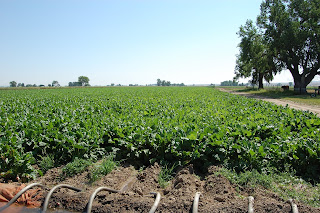#39 Map It Out
The ranch on Grasshopper Creek, Beaverhead County, Montana
I was 14 & my sister was 10 when my dad bought the ranch on Grasshopper Creek.
Dad was a veterinarian and we lived in town. His brother was buying a ranch and needed to sell one. Since Dad’s goal was always to ranch, Dad’s opportunity was created. With the ranch purchase came 4 horses. The horses for my sister and I were old gentle Morgan horses.
I am not sure if dad’s purchase was his retirement plan or a plan to make sure my sister and I knew how to work. Or maybe it was a place we where we could all work together! Regardless, it was the place we learned lots of life’s lessons plus learned to work, usually together. Sometimes together met just my sister and I; sometimes with Grandpa, sometimes with Dad, sometimes with the neighbor girl and sometimes with someone Dad hired to help us.
Since the ranch has a creek running through it, it was normal for the cows to want to “hang around” the creek area on hot summer days. There were no fences to keep them off the creek. There was plenty of grass on the hills, but the creek is where they liked to water and stay. Cattle can do lots of damage to the riparian area so it was necessary to always gather the cattle along the creek and move them (cowboy slang: push them) to the higher hills where there was plenty of grass. And push them, we did as cows don’t like to leave the creek area and climb hills!
Since Dad was working at his veterinary clinic, and didn’t want to keep a hired man during the summer; who best to ride daily and push the cows off the creek bottom. Well…his daughters and their trusty horses. At first Grandpa rode with us to show us the country. Weekends were working with Dad and he taught us the “methods”. Mom did not like horses, didn’t like to even hold the halter rope but she had to be the driver to take us to the ranch so we could ride. Since I was the oldest, I usually had the task of getting the horses gathered if they were not in the corral. I also had the task of saddling the horses or my sister often stood on a box to saddle her horse. Sometimes the neighbor girl, Kathy, rode with us. Once saddled, and lunches in our saddle bags, Mom waved to us as we took off. I often wonder at her bravery and what she thought. The ranch was 10,000 acres, rocky, lots of rattlesnakes and we were on horses. If a problem developed, we had to solve it. (long before cell phones!). There was a cabin at the ranch and a phone. When we got back from our ride/work/adventure, the rule was that we had to call the veterinary hospital and tell Dad we were back.
When Dad didn’t ride with us, he drew a map the night before and explained to us where we would probably find cows and calves and where we were to take them. Each summer was different as the practice was to rotate pastures. I wish I had saved those maps, drawn on the back of envelope or any other piece of paper that was handy. Of course after a few trips, my sister and I knew the where to go without a map. When dad was able to hire a hired man, he created the map that hangs in the porch at the ranch.
Lots of country!
Our work area or playground when we grew up!

























